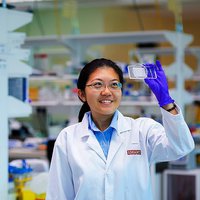Biotechnology & medicine
Guoyong Xu
Disease resistant crops that are also high yielding

Asia Pacific
Bee Luan Khoo
Designing microfluidic models to deliver real-time therapeutic read-outs with direct translational relevance for cancer.

MENA
Abdelkader Nasreddine Belkacem
A new practical electrode position behind the ear to record eye movements.

Latin America
Facundo Noya
His smart insole prevents amputations by detecting the appearance of wounds and ulcers on the feet of diabetic people

Europe
James Roberts
His incubator, which is inflatable, portable, and powered by a battery, could save the lives of millions of premature babies
